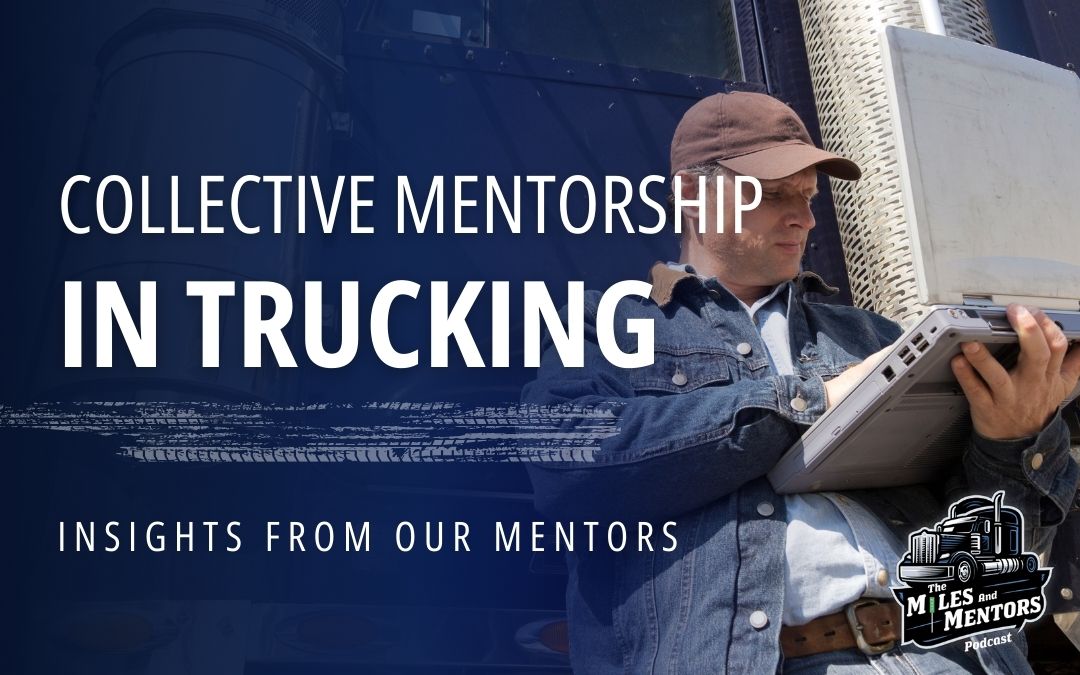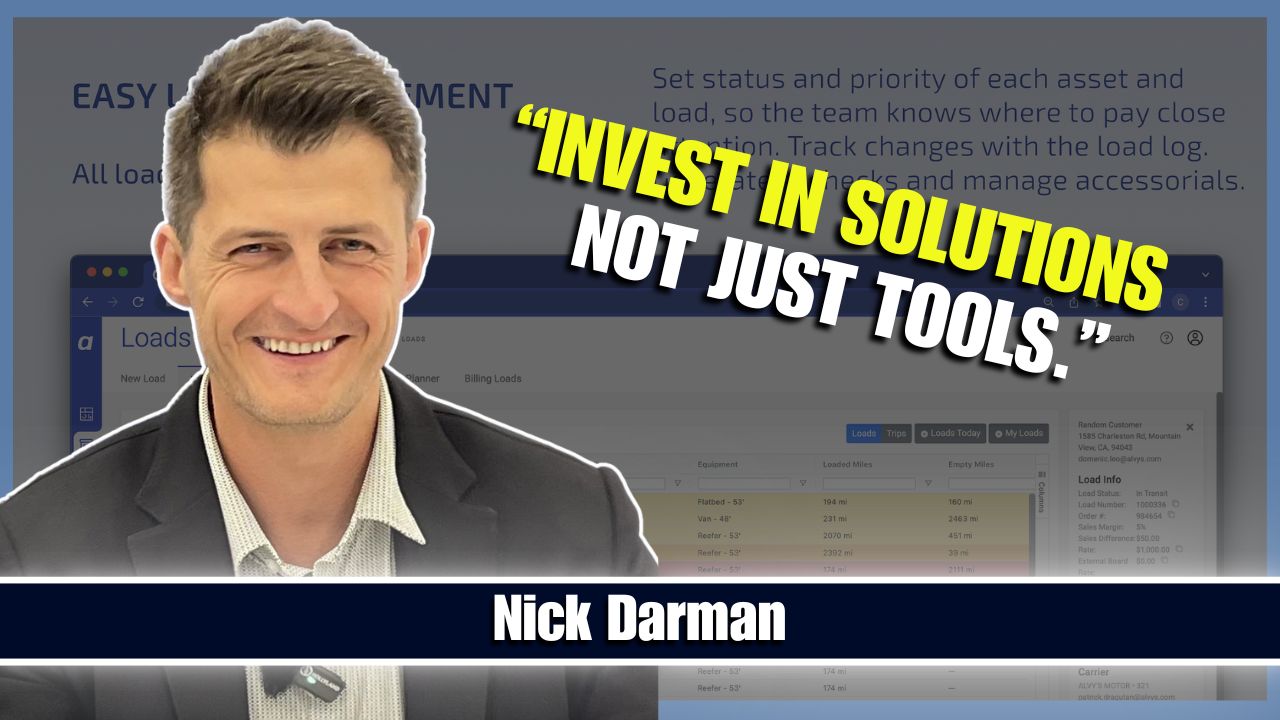In the ever-evolving world of freight and logistics, mentorship has long played a crucial role in shaping the careers of drivers, dispatchers, and fleet owners alike. However, the traditional view of mentorship as a one-on-one relationship is rapidly expanding. Today, collective mentorship is emerging as a transformative force in the trucking community. From seasoned professionals offering advice in online forums to educational podcasts and YouTube channels that share real-world knowledge, group-based learning is fostering a stronger, more informed trucking industry.
Collective mentorship in trucking refers to the process of learning from a broad group of individuals rather than a single designated mentor. It involves absorbing insights from coworkers, peers, leadership roles, industry veterans, podcasts, YouTube videos, webinars, and more. Unlike traditional models, collective mentorship encourages a collaborative approach to growth, where every conversation, piece of content, or shared experience becomes part of a driver’s education.
Mentorship is particularly vital for new drivers, many of whom transition into the industry with little practical knowledge beyond the classroom. Formal CDL programs teach the essentials, but the nuances of navigating equipment breakdowns, customer relationships, fuel costs, and compliance often come only through experience. In this gap between academic learning areas and on-the-job demands, collective mentorship becomes a lifeline.
The trucking industry presents a range of opportunities, but also a complex web of challenges. From managing small business operations to maintaining personal net worth statements, and adapting to adverse life events like breakdowns or inconsistent cash flow, drivers need more than just skills behind the wheel. They need insights from others who’ve already walked the road.
The Benefits of Collective Mentorship
Enhanced Learning Opportunities
Collective mentorship allows new and aspiring drivers to tap into a wide pool of experiences. Whether it’s watching a YouTube breakdown on maintaining brake systems or listening to a podcast about running a small fleet, learning is no longer confined to textbooks or one-on-one training. This access to diverse knowledge sources reflects the power of collective action in shaping individual success.
By studying how other professionals solve real-world problems, drivers learn how to adapt. They can assess scenarios they have not yet encountered and prepare mentally for how to respond. Encouraging critical thinking and adaptability ensures that drivers are equipped not just to follow rules, but to make decisions in unpredictable situations. In an industry where every mile counts, this form of collective strength improves operational readiness.
Mentorship that draws from academic professional sources also helps drivers become more well-rounded businesspeople. Learning from experts in accounting, logistics planning, and equipment financing can transform a driver’s career path. This aligns closely with the goals of education mentorship, which seeks to combine technical skills with business literacy.
Building a Supportive Community
One of the most transformative aspects of collective mentorship is the sense of community it builds. Trucking, often characterized as a solitary profession, finds its heart in connection when drivers support each other. Whether it’s a forum thread that explains how to dispute a freight charge or a podcast sharing mental health strategies, collective mentorship provides emotional and psychological support.
These networks create safe spaces for discussing burnout, isolation, or the impact of adverse life events. They also help foster resilience. Many drivers, especially those from socially and economically disadvantaged individuals or underrepresented groups, find their footing through these communities. Organizations like the African American Chamber and Brothers Restoring Urban Hope exemplify how mentorship and community service can lift entire populations.
Collective mentorship also encourages leadership roles among seasoned professionals who take initiative to guide others. These leaders often act as informal advisory board members, shaping community norms and providing reliable advice. Their work contributes to both business success and public health by advocating for safer practices and work-life balance.
Strengthening Industry Standards
As knowledge circulates more freely, collective mentorship helps uphold and even elevate industry standards. Best practices around compliance, safety protocols, and equipment maintenance become more widely understood and adopted. Drivers exposed to these conversations become better informed and more confident, even if they are new to the field.
In particular, ethics and professionalism benefit from these shared experiences. Mentors emphasize integrity, communication, and accountability. This transfer of knowledge supports continuous improvement across the entire trucking community and aligns with broader goals such as public health, road safety, and sustainable logistics.
Small businesses especially benefit when collective mentorship becomes part of the workplace culture. It reduces onboarding time, fosters loyalty, and equips employees with the knowledge to handle unexpected challenges. As these businesses grow, the collective action taken to mentor and support newer hires helps build long-term stability.
How Collective Mentorship Works in Trucking
Structured Mentorship Programs
Some trucking companies and trucking associations offer formal mentorship programs that pair experienced drivers with newer ones. These structured formats often include scheduled check-ins, goal setting, and even group learning sessions. The mentor helps the mentee navigate early challenges, from filing their first personal net worth statement to understanding which load boards are most reliable.
In these programs, leadership roles are emphasized not only for operational effectiveness but as part of a larger effort to cultivate collective action across organizations. Having an advisory board member involved often helps guide mentorship frameworks toward industry-aligned goals.
Successful initiatives are increasingly using these structures to support education mentorship, provide access to quality education, and recruit talent into the industry from diverse backgrounds. For example, several programs linked to the African American Chamber Commerce are working to uplift drivers from disadvantaged areas and provide long-term support.
Truckers can also receive structured CPR emergency training as part of public health education efforts within mentorship programs. Cardiopulmonary resuscitation CPR emergency readiness is one example where collective training raises safety standards across the board.
Informal Mentorship Networks
Not all mentorship happens within a corporate framework. In fact, many of the most impactful lessons come from informal channels. Peer-to-peer advice shared over coffee, in online forums, or via trucking podcasts represents a decentralized but incredibly effective knowledge network.
Social media groups and YouTube channels enable instant sharing of tips, warnings, and industry updates. Online mentorship allows geographically dispersed drivers to learn from one another. Some even find mentors through industry events hosted by community service organizations, which facilitate face-to-face networking in otherwise isolated professions.
These informal networks amplify the collective power of the trucking community. By removing hierarchical barriers, they ensure that every voice can contribute, whether from a small business owner or a first-year driver. These communities also encourage the documentation of financial records, such as personal net worth statements, to help new business owners understand long-term financial stability.
Additionally, online mentorship networks often emphasize the importance of soft skills, such as communication and empathy. These are critical traits for those taking on leadership roles and contributing to the trucking association ecosystem.
Overcoming Challenges in Collective Mentorship
Addressing Resistance to Mentorship
Despite its benefits, mentorship is not always universally embraced. Some drivers see it as unnecessary or feel they must “learn the hard way.” These attitudes often stem from misunderstandings about what mentorship really involves. Collective mentorship challenges this by making knowledge-sharing feel organic rather than forced.
The key is to spotlight success stories. When new drivers see peers growing their small businesses, handling compliance issues confidently, or improving their personal net worth statements, they begin to understand the value of mentorship. It also helps to reinforce that mentorship is a two-way street, where mentors gain just as much from teaching as mentees do from learning.
Highlighting community service initiatives where mentorship is an added benefit can also encourage participation. These programs not only support career growth but address broader issues like public health and economic mobility for socially and economically disadvantaged individuals.
Ensuring Inclusivity in Mentorship
Mentorship efforts must prioritize inclusivity. The trucking industry is vast and diverse, but mentorship channels do not always reflect this. Attracting and supporting underrepresented groups must become a core focus.
Diverse mentorship communities allow for a wider range of perspectives and problem-solving strategies. Women, people of color, veterans, and those from disadvantaged backgrounds can bring unique insights that enrich the collective strength of the group. Structured outreach through organizations like advisory boards, the African American Chamber, and community service groups can make a significant difference.
Programs that ensure access to quality education, financial planning, and leadership roles allow drivers to advance and, in turn, mentor others. These efforts ensure that mentorship does not reinforce barriers but instead works to dismantle them.
Inclusivity in mentorship is also about accessibility. Drivers should be able to engage regardless of schedule or location. This means creating digital spaces for mentorship and encouraging asynchronous communication through apps and forums.
The Future of Collective Mentorship in Trucking
Trends Shaping the Mentorship Landscape
Technology is rapidly changing how mentorship is delivered. From AI-powered coaching platforms to mobile apps that connect drivers based on location or experience, mentorship is becoming more accessible. Online webinars, podcast interviews, and industry panels are removing barriers of time and geography.
Collective action is being strengthened by digital infrastructure. These tools allow small businesses to access education once reserved for large fleets. They also make it easier to engage with leadership roles through virtual networking and community-building platforms.
The Role of Technology in Enhancing Mentorship
Mobile-first platforms allow for on-demand mentorship. Drivers can watch videos on cardiopulmonary resuscitation CPR emergency procedures, access real-time compliance checklists, or review sample personal net worth statements with just a few taps.
These tools reduce the knowledge gap between newer and seasoned professionals, democratizing access to high-level insights. Through collaborative features, even small business owners can function as advisory board members or create group chats that serve as ongoing mentorship spaces.
Technology is not replacing mentorship. It is enhancing it by ensuring that lessons learned in the field can be shared in real time, creating an ever-growing web of guidance and experience.
Digital platforms also support mentorship that aligns with public health goals, offering drivers content on healthy habits, stress management, and CPR emergency responses. This broadens the impact of mentorship beyond technical knowledge to holistic well-being.
Predictions for the Evolution of Mentorship in the Industry
Mentorship in trucking is poised to become more integrated with training, certification, and leadership development. Future models may tie mentorship into public health goals, safety incentive programs, or tax deductions for community service hours logged through mentorship.
The trucking association landscape is also evolving. We can expect to see more collaboration among associations, small businesses, educational institutions, and digital platforms to make mentorship more structured, inclusive, and scalable.
Mentorship may even become part of career progression criteria, with advisory board member roles emerging for experienced drivers who contribute to mentorship at scale. This shift supports long-term success in the industry by aligning business growth with collective empowerment.
Trucking companies may also partner with academic professional institutions to create certification programs that recognize mentorship contributions. These credentials could help drivers move into leadership roles or advisory board positions.
A Lasting Impact on the Trucking Community
Collective mentorship is more than just a helpful tool. It is a movement built on shared experience, trust, and the willingness to uplift one another. As the trucking industry continues to grow and adapt, this mentorship model will remain essential.
Whether through formal programs, social media conversations, or insights shared in a podcast, the trucking community has the power to support its own. When drivers, fleet owners, and advisors work together through mentorship, they build a stronger, safer, and more sustainable industry.
It is time for every stakeholder to recognize the power of collective mentorship and invest in it. Supporting these efforts is not just good practice. It is essential for the long-term health, equity, and prosperity of the industry we all depend on.



